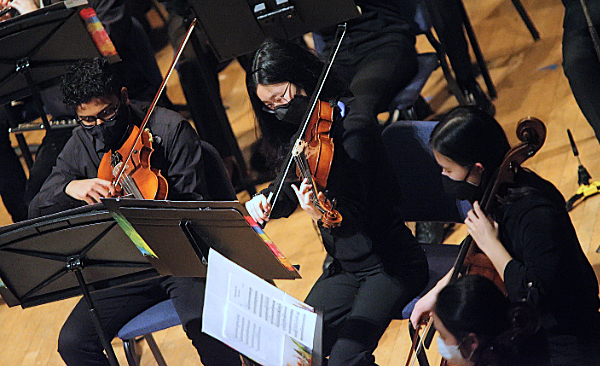Experts warn that proposed work requirements and budget cuts to HUD programs could strip families of rental assistance and permanent housing benefits.
by Farrah Hassen
OtherWords
President Trump isn’t only bulldozing the East Wing of the White House with the help of his billionaire friends. The former developer is also taking a wrecking ball to affordable housing.
Amid historically high housing costs, declining wages, and record homelessness, the Trump administration is upending longstanding federal housing policy that serves the nation’s poorest residents. That could be especially devastating in Illinois, which has among the highest rates of homelessness in the country according to federal data.
Housing and Urban Development (HUD) assistance programs support over 8 million people — mostly seniors, those with disabilities, and families with children — by providing public housing units or rental subsidies. This assistance has also been shown to improve food security and nutrition for low-income households.
However, ProPublica reports that the Trump administration is planning changes that could take away this support from millions.
One proposed regulation would allow local housing authorities — and even private landlords — to impose work requirements and time limits on public housing and vouchers for families without an elderly or disabled head of household.
While the administration claims this rule would promote “self-sufficiency,” advocates like the National Housing Law Project’s Deborah Thrope argue that these work requirements are actually “a way to strip families of their benefits.”
Most non-elderly, non-disabled households who receive assistance already include at least one person who works. And there’s little evidence that arbitrary time limits or work requirements help move people off subsidies. They certainly don’t make housing more affordable.
This draft rule reflects the Trump administration’s larger approach to housing: Punishing those in need but failing to address affordability — the primary driver of homelessness.
Today, a person who works full-time at minimum wage cannot afford a safe place to live almost anywhere in the country. Many are forced to rely on safety net programs — like rental assistance, SNAP, and Medicaid — that Trump is slashing to prioritize tax breaks for billionaires.
Already, Trump’s 2026 budget proposes to cut federal rental assistance by a devastating 43 percent. The administration is also seeking to dramatically cut federal funds for permanent housing to prevent homelessness.
According to internal HUD documents obtained by Politico, the department intends to cap 2026 funding for permanent housing projects, cutting spending by over half and moving funds instead to transitional housing assistance with work or service requirements.
If implemented, these cuts could result in over 170,000 people losing housing assistance and falling into homelessness. Without permanent housing and supportive services, which evidence has repeatedly shown is the most effective way to solve homelessness, more people will end up being shuffled between temporary shelters or forced to live on the streets.
Investing in temporary shelter over permanent housing is wasteful and ineffective. It’s a Band-Aid for our country’s larger failure to ensure adequate housing as a human right and a basic need for all people.
In fact, Trump’s gutting of housing assistance, Medicaid, and SNAP directly violates our rights to housing, health care, and food, which are all recognized under international law as among the universal human rights that governments must protect. These are not bargaining chips to be used and abused by out-of-touch politicians.
Our government refuses to recognize these rights because, under our current economic system, the wealthy see social goods like housing as commodities to be bought up at the expense of working people.
We can overcome these policy choices that favor the wealthy by demanding that our government invest in social programs through taxing the rich.
We should double down on real housing solutions, like increasing federal rental subsidies and enhancing tenant protections. We also need publicly funded housing (or “social housing”) that exists outside the private market and remains permanently affordable.
In the world’s wealthiest nation, our needs and fundamental human rights should never be defunded or negotiated away to subsidize billionaires, the bloated $1 trillion Pentagon budget, and earmarks for a cruel mass deportation and detention system.
The foundation for our nation’s housing policies should be built on the human right to housing, not the private profit of billionaires and real estate speculators.
OtherWords
 OtherWords columnist Farrah Hassen, J.D., is a writer, policy analyst, and educator. This op-ed was distributed by OtherWords.org.
OtherWords columnist Farrah Hassen, J.D., is a writer, policy analyst, and educator. This op-ed was distributed by OtherWords.org.















